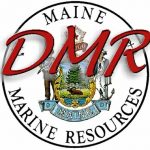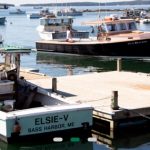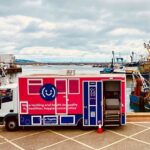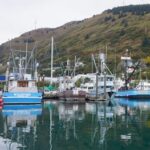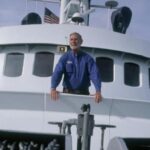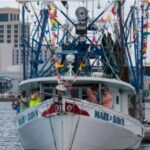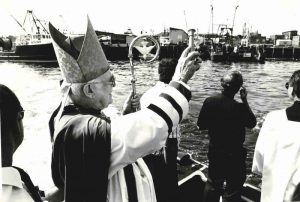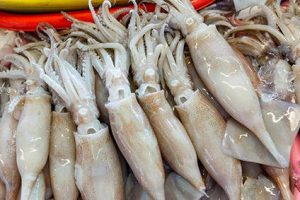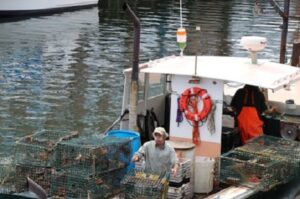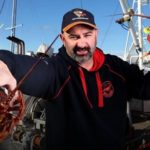Daily Archives: December 14, 2015
North Carolina Fisheries Association Weekly Update for December 14, 2015
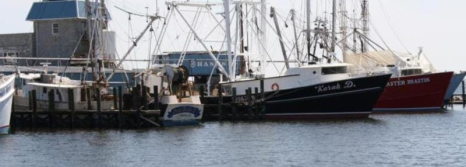 Click here to read the Weekly Update, to read all the updates, Click here 20:15
Click here to read the Weekly Update, to read all the updates, Click here 20:15
New Study: Scientists unravel whale entanglement damage
 Scientists from the Woods Hole Oceanographic Institution have released a new study documenting how much damage entanglements in fishing gear does to North Atlantic right whales — one of the most endangered of all the large whale species. Their migratory routes take them through some of the busiest commercial fishing areas along the East Coast of the United States — including the Gulf of Maine — and into . According to the institution scientists, entanglements with fishing gear represent the leading cause of death for endangered whales. Read the article here, 18:32
Scientists from the Woods Hole Oceanographic Institution have released a new study documenting how much damage entanglements in fishing gear does to North Atlantic right whales — one of the most endangered of all the large whale species. Their migratory routes take them through some of the busiest commercial fishing areas along the East Coast of the United States — including the Gulf of Maine — and into . According to the institution scientists, entanglements with fishing gear represent the leading cause of death for endangered whales. Read the article here, 18:32
Coast Guard medevacs fisherman Saturday near Hatteras Inlet
 The Coast Guard medevaced an injured man Saturday from a fishing boat near Hatteras Inlet. received a request from the 78-foot fishing boat Daniel Joseph at 10:27 a.m. Saturday to transport a 58-year-old fisherman to shore for medical treatment after he sustained injuries to his fingers while shrimping. A Coast Guard 24-foot Special Purpose Craft-Shallow Water crew from Station Hatteras Inlet launched at approximately 11:17 a.m. Read the report here 16:45
The Coast Guard medevaced an injured man Saturday from a fishing boat near Hatteras Inlet. received a request from the 78-foot fishing boat Daniel Joseph at 10:27 a.m. Saturday to transport a 58-year-old fisherman to shore for medical treatment after he sustained injuries to his fingers while shrimping. A Coast Guard 24-foot Special Purpose Craft-Shallow Water crew from Station Hatteras Inlet launched at approximately 11:17 a.m. Read the report here 16:45
California sea lions suffering from brain damage caused by algal blooms

Cove Harbour – Man puts huge boulders around harbour to stop fishermen leaving their boats
 A landowner at an historic harbour in Aberdeen has this weekend put in place four “eyesore” boulders as part of his ongoing efforts to prevent a local community – which has been using the site for fishing for hundreds of years – from storing their boats on his land. Pralhad Kolhe, a consultant plastic surgeon who owns some of the bay at Cove Harbour, had earlier this year put out an order to the owners of the traditional fleet of vessels to move their boats from the spot, where north-east families have fished undisturbed for centuries. Read the article here 11:38
A landowner at an historic harbour in Aberdeen has this weekend put in place four “eyesore” boulders as part of his ongoing efforts to prevent a local community – which has been using the site for fishing for hundreds of years – from storing their boats on his land. Pralhad Kolhe, a consultant plastic surgeon who owns some of the bay at Cove Harbour, had earlier this year put out an order to the owners of the traditional fleet of vessels to move their boats from the spot, where north-east families have fished undisturbed for centuries. Read the article here 11:38
From trap to plate, Maine lobster distribution is a complex system
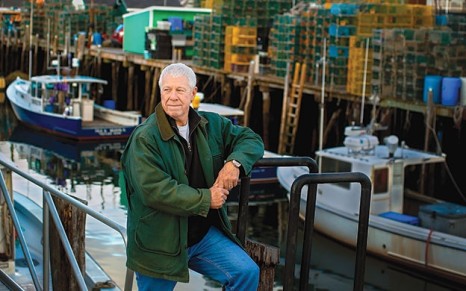
John Norton, president and co-founder of Cozy Harbor Seafood, outside the Portland waterfront facility.
David Cousens has been fishing for lobsters for about 40 years. For seven months each year, Cousens — a South Thomaston resident and long-time president of the Maine Lobstermen’s Association — heads out early in the morning on his Young Brothers boat, “Three Sons,” to tend 800 traps, spending 10 to 11 hours per day on the water.,, The lobster industry largely caters to the disposable-income market, and so is vulnerable to economic downturns. “Lobster’s a celebration food and so, when the economy’s bad, the market’s bad,” Cousens says. Economic multiplier, Complex supply chain Read the article here 08:53
Global Supermarkets Selling Shrimp Peeled by Slaves
 Every morning at 2 a.m., they heard a kick on the door and a threat: Get up or get beaten. For the next 16 hours, No. 31 and his wife stood in the factory that owned them with their aching hands in ice water. They ripped the guts, heads, tails and shells off shrimp bound for overseas markets, including grocery stores and all-you-can-eat buffets across the United States. After being sold to the Gig Peeling Factory, they were at the mercy of their Thai bosses, trapped with nearly 100 other Burmese migrants. Children worked alongside them, including a girl so tiny she had to stand on a stool to reach the peeling table. Read the article here 08:01
Every morning at 2 a.m., they heard a kick on the door and a threat: Get up or get beaten. For the next 16 hours, No. 31 and his wife stood in the factory that owned them with their aching hands in ice water. They ripped the guts, heads, tails and shells off shrimp bound for overseas markets, including grocery stores and all-you-can-eat buffets across the United States. After being sold to the Gig Peeling Factory, they were at the mercy of their Thai bosses, trapped with nearly 100 other Burmese migrants. Children worked alongside them, including a girl so tiny she had to stand on a stool to reach the peeling table. Read the article here 08:01

































